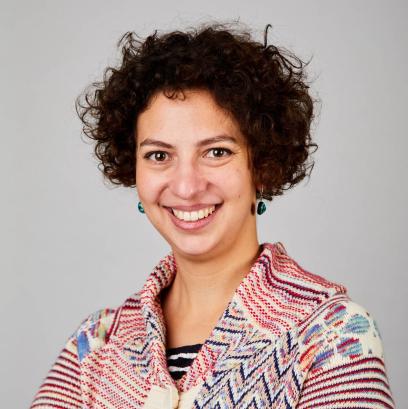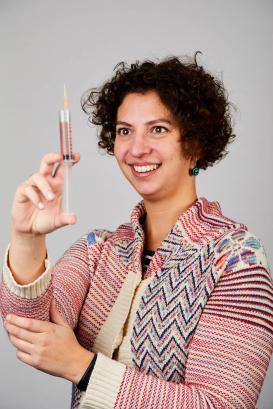

Prof. Dr. Ir. Damya LAOUI
Biography
In 2016, I became a teamleader of the ‘Tumor-Immunology team’ and VIB-Brussels Center of inflammation research. I became Research Professor (10% BOF-ZAP) in 2018 in the lab of Cellular and Molecular Immunology at the VUB and I started my tenure track in 2020 in the same lab as a BOF-ZAP & Collen Francqui Professor. In October 2022, I became VIB-groupleader of the Lab of Dendritic Cell Biology and Cancer Immunotherapy, associated to the Inflammation Research Center.
The mission of my lab is to constantly improve our understanding of the immune compartment in tumors with a particular focus on dendritic cells, to develop novel cancer therapies against tumor progression, tumor relapse and metastasis. More specifically, we use the heterogeneity of tumor- derived conventional dendritic cells (cDCs), as a target for therapeutic intervention. Our research has enabled us to uncover the genetic, phenotypic and functional characteristics of immune cell subpopulations in different activation states in the tumor microenvironment. Indeed, with our pioneering research published in Nature Communications (Laoui et al, 2016), we have identified and characterized different cDC subpopulations in the tumor and proven their utility as novel cell-based cancer therapy. Our continued research on DCs revealed a differential role of cDC1 and cDC2 in mounting a CD8+ T-cell response upon αCD40 therapy (Murgaski, …., Laoui, Cancer Research, 2022) and identified a new Treg-stimulating DC phenotype induced upon Flt3L treatment (Clappaert ,…., Laoui, Frontiers in Immunology, 2023).
In addition, several projects are ongoing in the lab focusing on further improving cDC therapy, bringing it to the clinic as well as increasing the fundamental understanding of their activity and their relation to other cell types within the tumor microenvironment (TME). These projects allowed to build and expand our expertise in both in vivo orthotopic cancer models for breast cancer, lung cancer and ovarian cancer, using state-of-the-art analysis techniques such as scRNA-seq, CITE- seq, advanced flow cytometric analysis and spatial transcriptomics as well as functional ex-vivo and in vitro assays.
Location
Pleinlaan 2
1050 Brussels
Belgium
